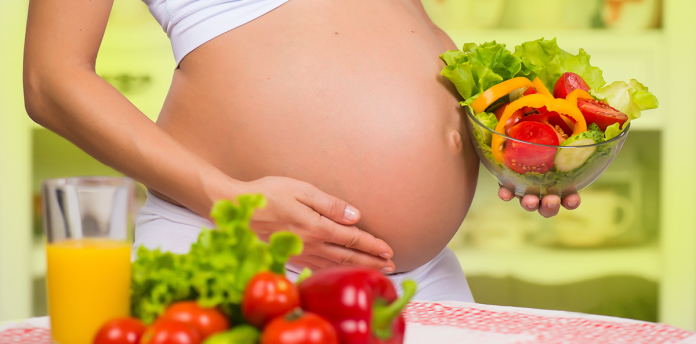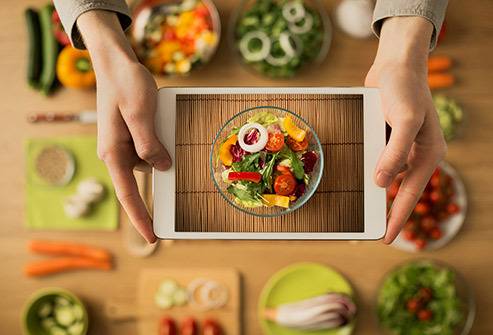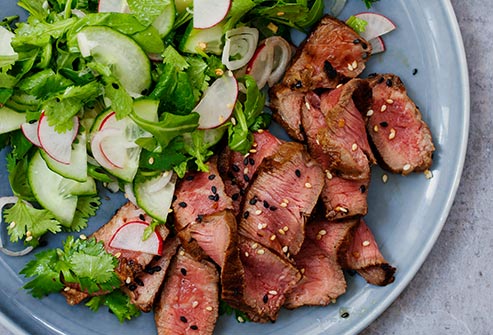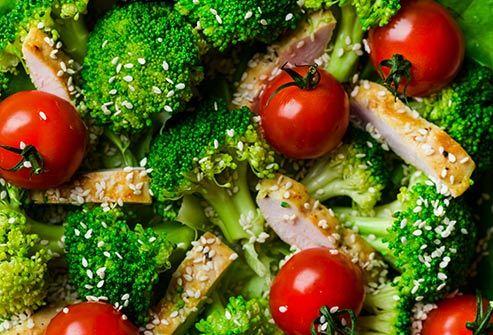
source:- diabeticnation . com
The child of the womb gets nutrition from his mother. The future health of the unborn child and mother depends on how much the pregnant mother’s diet is. But it is complicated for a diabetic mother. Women who are diabetic tend to get very much confused about what to eat and what to not. In this article, we are giving you an account of a diabetic diet when pregnant.
Many people are worried about excess weight. Though many people think that if the diabetic mother eats more food then the baby in the womb will be larger. That can bring terrible danger to mother and baby. So here is a proper diabetic diet when pregnant to look at.
Every adult of every adult needs a daily diet of 21-60 kg-calories, but a pregnant woman needs more than 350 kilograms of calories. Otherwise, the child suffers from malnutrition and is born with less weight. The need for the diabetic diet when pregnant discussed below-

source:- webmd . com
Diabetic Diet When Pregnant:
Here we will talk about some standard food for diabetic diet when pregnant for example. However, considering your age, physical condition, weight, etc., you should know from your doctor about good diet recommendations. Foods to include in a Diabetic diet when pregnant is…
Protein:
Protein helps in the formation and growth of the body. Mother’s protein demand during pregnancy is higher than usual. The baby of the womb helps in the formation of new tissue in the baby’s body. Pregnant mother must take at least 60 grams of protein diet daily.
To meet the daily diet, two to three pieces of fish, 3 to 4 pieces of meat and at least one egg will be eaten. Regularly one-day glasses of warm hot milk will be required.
According to the World Health Organization (WHO), a pregnant mother first, second and third trimester, requires 1, 9 and 31 grams of extra protein per day respectively.
Keep in mind that raw or semi-finished meat cannot be eaten and eggs can be eaten properly. You should drink or drink. And milk should be boiled well.
Calcium:
During pregnancy, most of the calcium needs in the mother’s body. In the last three months of pregnancy, many calcium is needed for the formation of baby’s bones and teeth. Although the demand for calcium increases in comparison to the normal demand from the early pregnancy, the last 3 months of the day is most demanded.
According to the WHO, a pregnant mother needs to eat 1,000 milligrams of day and especially 1200 milligrams of calcium-rich in the last 3 months.
Milk, dairy products, fish, almonds, oranges, dried fruits, green leafy vegetables, vegetables, cauliflower, and oilseed are rich in calcium.
Iron:
Most of our pregnant women suffer from anemia. During pregnancy, the amount of blood in the mother’s body doubled. Iron helps in the formation of hemoglobin and energy in the body, improves the immune system of the fetus and develops the nervous system.
According to the Institute of Medicine (IOM), a pregnant mother needs to eat 27 milligrams of iron per day. At this time, if enough iron is not taken, then anemia or anemia can occur. So mother will have to eat iron-rich foods to prevent blood loss.
Chicken, eggs, fish, banana, and sesame seeds have a lot of iron in them all.

source:- webmd . com
Folic Acid:
Due to the large role of folic acid in cell division, there is a great need for folic acid during pregnancy. Folic acid helps in the formation of the backbone of the baby. If there is a lack of folic acid for some reason, there may be mild defects in the baby’s spinal cord. If the pregnant mother’s body does not meet the needs of folic acid, then the pregnant baby cannot grow properly and there is a possibility that the baby will lose weight during birth.
It is important to keep in mind that the first few weeks of pregnancy meet the needs of Folic Acid. Because, especially during pregnancy, the effects of folic acid on the pregnant mother’s body have its effect on pregnant women. According to IMO, every 600 micrograms folic acid should be eaten rich during pregnancy.
Folic acid foods include broccoli, rice, lentil pulses, orange juice, spinach, and bread.
Vitamin A:
Vitamin A is needed for the formation of bones and internal organs. Vitamin A needs to be grown in each and every part of the pregnant baby, disease prevention, functioning of eyesight properly and overall increase. As the infant receives all the nutrients through the mother, the need for vitamin A needs to be met in the pregnant mother’s body.
According to the WHO, a pregnant mother should consume 800 milligrams of Vitamin A diet per day.
In that case, the chicken, eggs, carrots, mango, orange, and yellow fruits and dark green vegetables in the food list.
Vitamin B-1, B-2, and Niacin:
Vitamin-B family needs 6 vitamins, Vitamin B1 or Thiamin, B-2 or Riboflavin and B-3 or Nayasin increases the demand during pregnancy. B vitamins keep the diastatic system active.
Helps reduce fatigue. As well as reducing the dryness of the skin, due to the change of hormones, changes in the color of the skin of the stomach, waist, and throat of these places, stomach skin causes tension, so B vitamins play an important role in skin care.
There is plenty of vitamin B available in ‘red meat’, eggs, bananas, kidneys beans, spinach, and milk.
Vitamin C:
With the help of Vitamin C, the body can easily absorb iron from vegetables, reduce the likelihood of anemia, and increase the immune system. For this, doctors or nutritionists advise eating lemon, orange, grapefruit or Indian gooseberry immediately after eating it. Some recent studies have found that the fetus Vitamin-C plays an important role in mental growth.
Vitamin-C Folic Acid Effect: The need for collagen protein in the baby’s muscles and bone formation. Vitamin-C also helps in the formation of collagen. According to IOM, a pregnant mother should consume 85 mg of Vitamin C-rich food.
Vitamin C rich foods such as Indian gooseberry, guava, orange,lemons, potato, greens, and tomatoes, will be eaten.
Remember, after cooking a lot of vitamins is damaged.

source:- webmd . com
Vitamin-E:
Vitamin E is a very important nutrient for a diabetic diet when pregnant.
Vitamin E helps in blood circulation Vitamin E is available in apple, nuts, carrots, cabbage, eggs, olive oil, and sunflower seeds.
Zinc:
The role of zinc and folic acid in the first three months of pregnancy is immense. Zinc prevents miscarriage and increases the weight of the baby. Zinc keeps the function of different types of body parts and plays a role in the formation of tissues and cells. Even the pregnancy resistance of the baby in the womb and the increase in zinc is important.
According to the WHO, it is necessary to eat zinc-rich food during pregnancy for the first 3 months 11 milligrams, second 3 months 14 milligrams and the last 3 months 20 milligrams.
This zinc can be found in Protein. Besides, nuts, sweet pumpkin seeds, wheat have a lot of genetic ability to meet your needs during pregnancy.
Iodine:
Iodine is a very important nutrient for a diabetic diet when pregnant. In the absence of iodine during pregnancy, the development of the child’s intellect is prevented from the time of pregnancy to 3 months of age.
There is also the possibility of the death of the baby in the absence of iodine. It also keeps the thyroid healthy. WHO has suggested eating 200mg of iodized food every day during pregnancy.
Among iodized foods, there are iodized salt, sea fish, cheese, sour yogurt, cow’s milk etc.
Docosahexaenoic Acid (DHA):
DHA is one of the omega-3 fatty acids. It is helpful in the development of baby eyes and blood cells in the womb. Especially in the last 3 months, DHA works in the development of the child’s brain.
Pregnant mother DHA rich diet is quite a requirement. A pregnant mother should eat 200 milligrams of food daily so that DHA is there.
Marine fish and eggs can be found in DHA.
Potassium:
Potassium is a very important nutrient for a diabetic diet when pregnant. Potassium regulates blood pressure and maintains the right balance of the fluid in the body and keeps the heartbeat and the energy level normal.
Potassium-rich foods are sweet potato, raisin, broccoli, sour yogurt, lentil, and orange juice.
Vitamin Tablet:
During pregnancy, extra vitamins are needed in the body. If this additional vitamin requirement is not met by food, then the doctor should consult the vitamin tablet according to the advice.
Water:
Water is very important for a diabetic diet when pregnant. Drink plenty of water every day. Water helps in making blood in the body. Blood transfusion through the blood of the baby’s body. Water also prevents inflammation of urine and excessive sweating. Flowers, fresh fruit juice can be eaten with water.
Check Related Article:-
- Thyroid diet for weight loss: A Proper Guide
- 20 Indian Fruits For Weight Loss
- Fatty Liver | Patients Of Fatty Liver Foods To Avoid
- 14 Common Causes Of Arm Pain
- 14 Common Symptoms Of Vitamin B Defficiency!
- 7-Days Sample Indian Diet For Liver Cirrhosis
- Early Symptoms Of Liver Damage To Look For
- # Know The Aloe Vera Juice Side Effects On Our Health
- Best Diet After Jaundice Recovery To Get Back Into The Track
- Diet For 3 Year Old Boy’s Excessive Sweaty Palms
- Diet For Reducing A Fatty Liver | Foods To Include & Exclude
- Kidney Stone Diet Chart | Food To Eat & Avoid